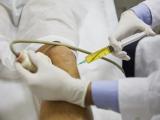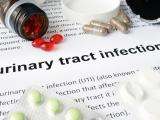An international coalition of organizations today released a set of recommendations to help shape the negotiations at the upcoming United Nations (UN) High-Level Meeting on Antimicrobial Resistance (AMR).
The document from the AMR Multi-Stakeholder Partnership Platform, which brings together more than 200 stakeholders from different sectors, includes 10 "actionable and measurable" steps that should be taken by UN member states to "ensure a healthier, more sustainable and resilient present and future in which antimicrobials are preserved as critical lifesaving medicines equally accessible to everyone everywhere."
The recommendations take a One Health approach to the rising threat of drug-resistant infections, calling for coordinated, cross-sectoral and multidisciplinary collaboration across the human, animal, plant, and environment sectors. The hope is that some of these recommendations will be included in the political declaration on AMR that UN members ultimately agree to at the September 2024 UN General Assembly (UNGA) meeting.
That declaration will guide global efforts to address AMR, which is widely viewed as a looming public health crisis, over the coming decade.
"This release is not just a document, it's a blueprint for action," Jean-Philippe Dop, DVM, deputy director-general of the World Organization for Animal Health (WOAH) and a member of the platform's steering committee, said today during a webinar held to mark the release of the recommendations.
Financial support for National Action Plans, antibiotic R&D
Among the actions recommended in the document is accelerated implementation of AMR National Action Plans (NAPs), building on country context, capacity, and capabilities. It also calls for sustainable financing for NAPs.
This is a critical issue because the development of NAPs, which are intended to guide how countries monitor and respond to AMR, was among the items called for in the 2016 UNGA political declaration on AMR. While more than 90% of countries have developed NAPs since then, the World Health Organization (WHO) says only 24% of countries report effective implementation of those plans—primarily because they lack funding for them. Only 10% report allocating dedicated financing for their NAPs.
"I think this is quite important because they [UN member states] have asked countries to go through this exercise of developing national action plans, and a lot of countries now have them, but they don't have the money to implement them," Francesca Chiara, PhD, MPH, director of the Center for Infectious Disease and Research's (CIDRAP's) Antimicrobial Stewardship Project, said in an interview.
CIDRAP is among the more than 200 groups involved in the AMR Multi-Stakeholder Partnership Platform, which also includes other research institutions, civil society organizations, philanthropic groups, intergovernmental organizations, and private sector groups. It was established by the Quadripartite organizations—WOAH, WHO, the UN Food and Agriculture Organization, and the UN Environment Program—in 2022 to help build consensus and promote a "shared global vision" for how to preserve antimicrobials and ensure their equitable use through a One Health approach.
CIDRAP also publishes CIDRAP News, but its research and policy staff operate independently from its news team.
Another of the recommendations that emerged through a series of discussions over the past year among the stakeholders is for UN member states to encourage high-income countries to commit to taking an "end-to-end" approach to sustainable antimicrobial research and development (R&D). This includes public investment in incentive programs that would fix the broken market for new antibiotics and keep pharmaceutical companies engaged in antibiotic development, which has not kept pace with the spread of AMR.
Other recommendations include strengthening of sector-specific AMR and antimicrobial use surveillance and ensuring universal, equitable, affordable, and sustainable access to essential medicines, vaccines, and diagnostics for humans and animals. Lack of access to newer antibiotics and the inability to monitor AMR levels are just a few of the reasons low- and middle-income countries (LMICs) are being disproportionately affected by AMR.
But for Chiara, who took part in the working group discussions on the recommendations, equally important is the document's call to strengthen what she views as the basic public health strategies that can prevent people in LMICs from getting infections from drug-resistant bacteria—infection prevention and control; water, sanitation and hygiene (WASH); and vaccination.
"It doesn't matter how many new drugs we produce," she said. "If we cannot prevent infections from happening in the first place, then we can produce thousands of drugs, but eventually they'll still develop resistance."
One Health collaboration
Reflecting the One Health approach, which views the health of humans, animals, plants, and the environment as interconnected, there are also recommendations to transform agrifood systems to significantly reduce antimicrobial use while optimizing animal health and welfare; to ensure that animals have access to essential medicines, vaccines, and diagnostics; and to prevent and address the drivers, sources, and challenges of the environmental dimension of AMR.
If we cannot prevent infections from happening in the first place, then we can produce thousands of drugs, but eventually they'll still develop resistance.
CIDRAP research associate Natalie Vestin, MPH, who also contributed to the document, said the focus on enhancing One Health collaboration across sectors is critical, particularly for efforts to reduce antimicrobial use in livestock and crops without endangering animal welfare and food security.
"We talk about One Health all the time, but we talk about it from the point of view of people working in AMR, especially in national governments," Vestin said. "But we don't necessarily talk about it from the lens of people working in animal health or people working in food security, who know the most about those areas and know what's best in those areas."
Just getting those groups in the same room and aligning their goals, Vestin added, will be important for "putting into practice a lot of what we preach" about One Health.
The question is how many of these recommendations will end up in the political declaration on AMR produced by UN members states in September. Because, as with all high-level diplomatic negotiations, not all countries will see eye-to-eye on the best ways to address AMR. Questions around funding, equity, and fairness will be hotly debated.
But Vestin said the mere fact that these recommendations were published, and the discussions that went into them, is noteworthy.
"Just the fact that they exist, and there is that emphasis on accountability, that's a good thing," she said.























